Category: My Stories for You : Living Experiences
-
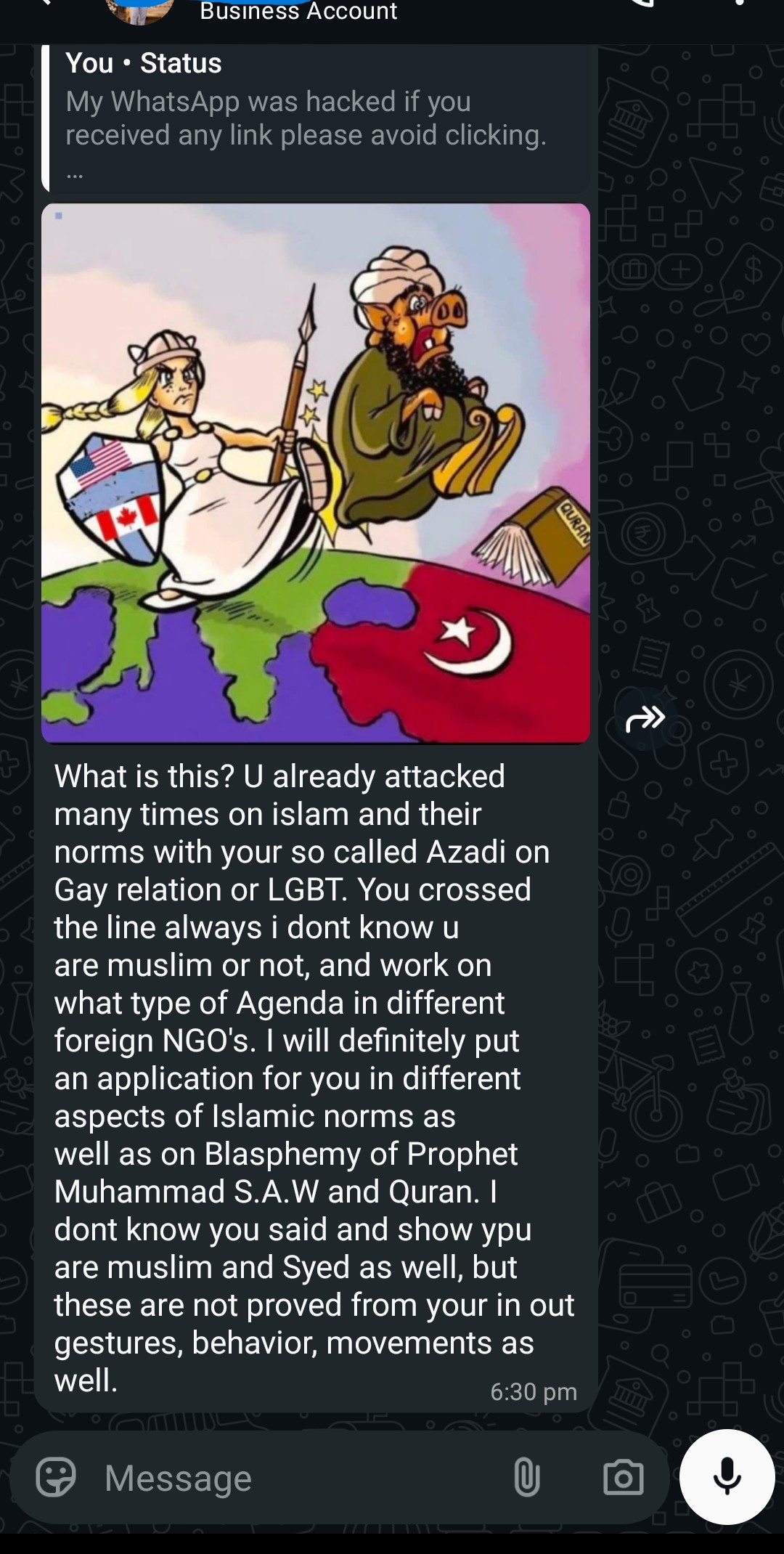
URGENT SECURITY NOTICE: My Previous WhatsApp Number Has Been Compromised
To my community, colleagues, and friends, I am writing this urgent update to inform you that my long-standing personal and organizational WhatsApp number (+92 313 6234725) has been hacked and compromised. Effective immediately, I have lost all administrative control over this number. It is currently being operated by malicious actors who have no association with…
-

Beyond the Diagnosis: Launching Ali’s Treatment Trek
For over 15 years, my life has been a journey through shadows and light. I have faced the sterile walls of HIV clinics, the heavy silence of societal stigma in the streets of Multan, and finally, the bright lights of global advocacy stages. But how do I share a 15-year journey with someone who hasn’t…
-
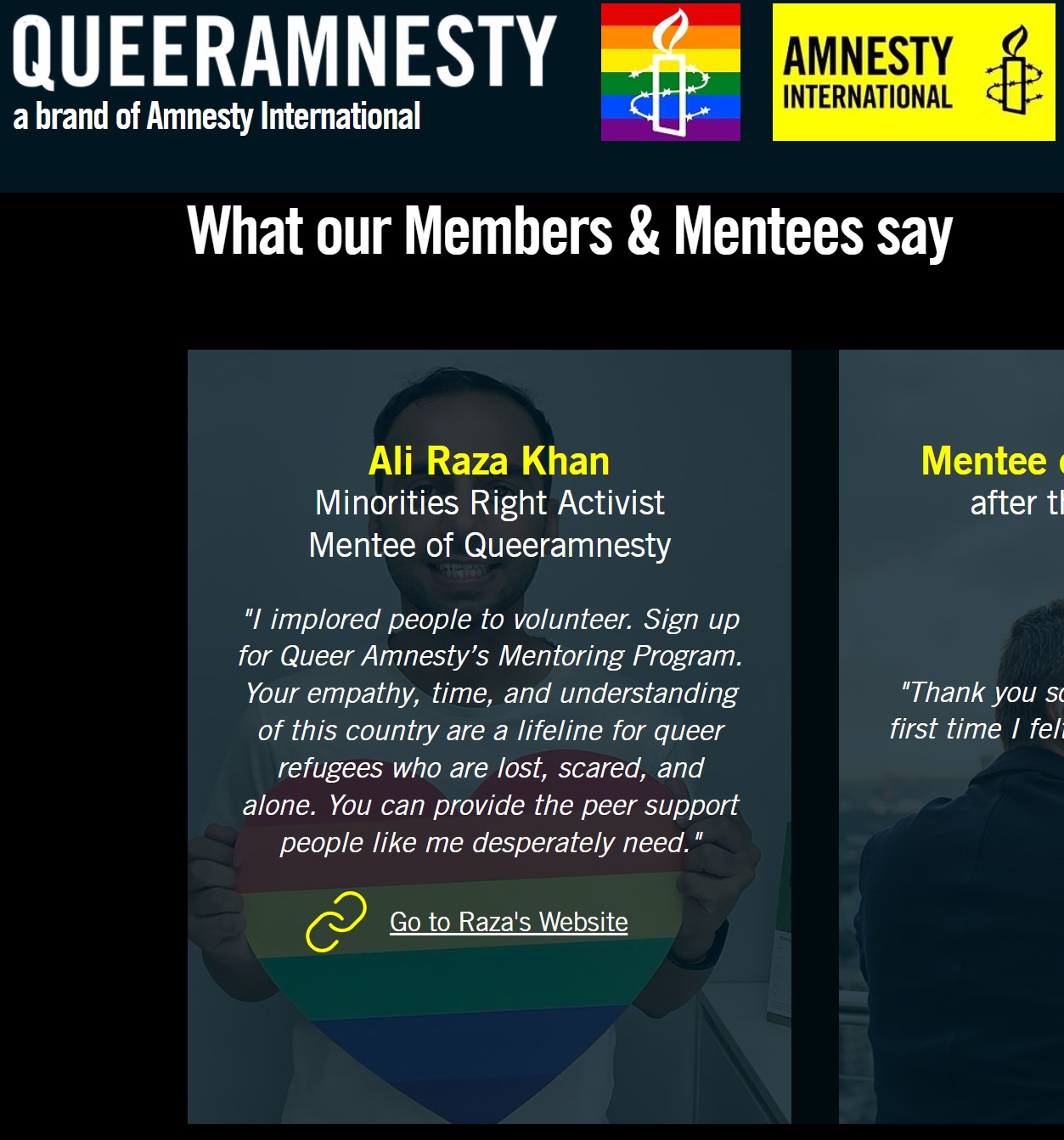
From Isolation to Integration: My Journey with the Queeramnesty Mentorship Program
Finding your way in a new country is never easy—especially when you are a queer refugee navigating the complexities of an asylum process. As a Minorities Right Activist who has dedicated years to peace-building, I know firsthand that while resilience is internal, support must be communal. Recently, I had the honor of providing feedback for…
-
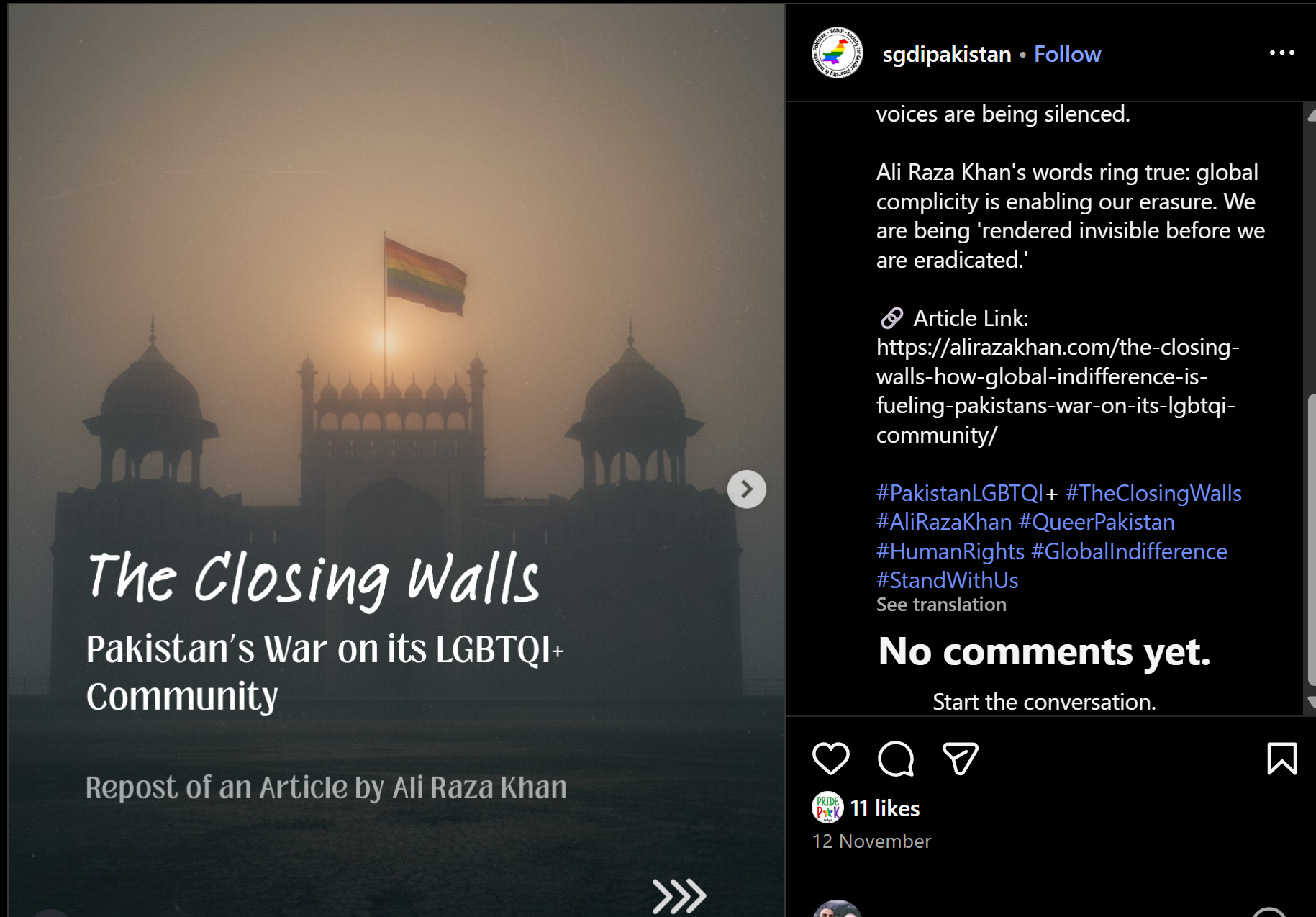
United We Stand: Gratitude to SGDI Pakistan for Amplifying Our Fight
In times of deepening silence from the global community, the voices of our local allies become our most vital lifeline. I want to extend my heartfelt thanks to the Society for Gender Diversity & Inclusion Pakistan (SGDI Pakistan) for resharing my recent article, “The Closing Walls: How Global Indifference is Fueling Pakistan’s War on its…
-
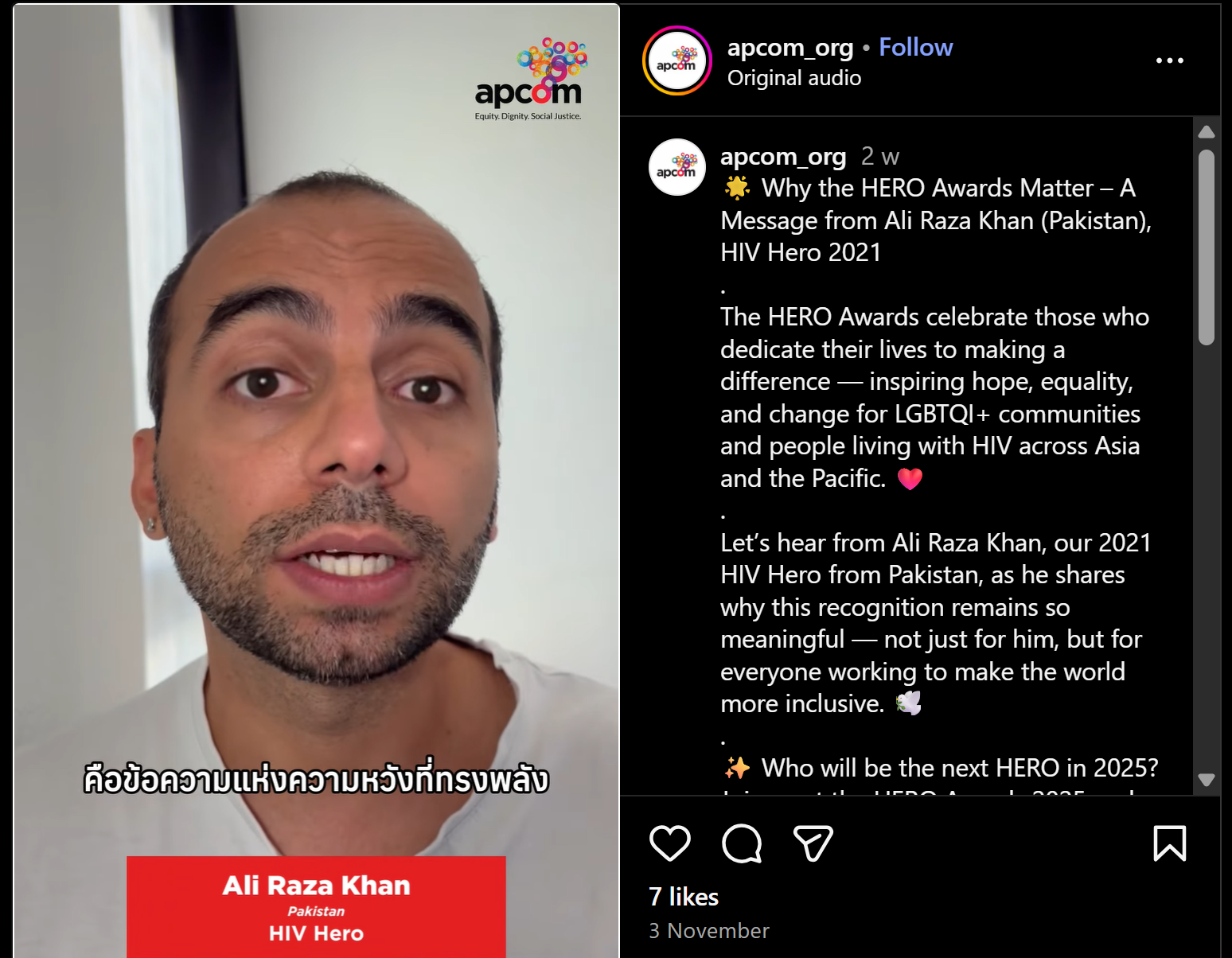
Why the HERO Awards Are a Lifeline: My Message for APCOM 2025
As we approach the APCOM HERO Awards 2025, I’ve been reflecting deeply on what this platform means—not just for those of us who receive an award, but for our entire community across Asia and the Pacific. Back in 2021, I was humbled to be named the HIV Hero at these prestigious awards. It was a…
-
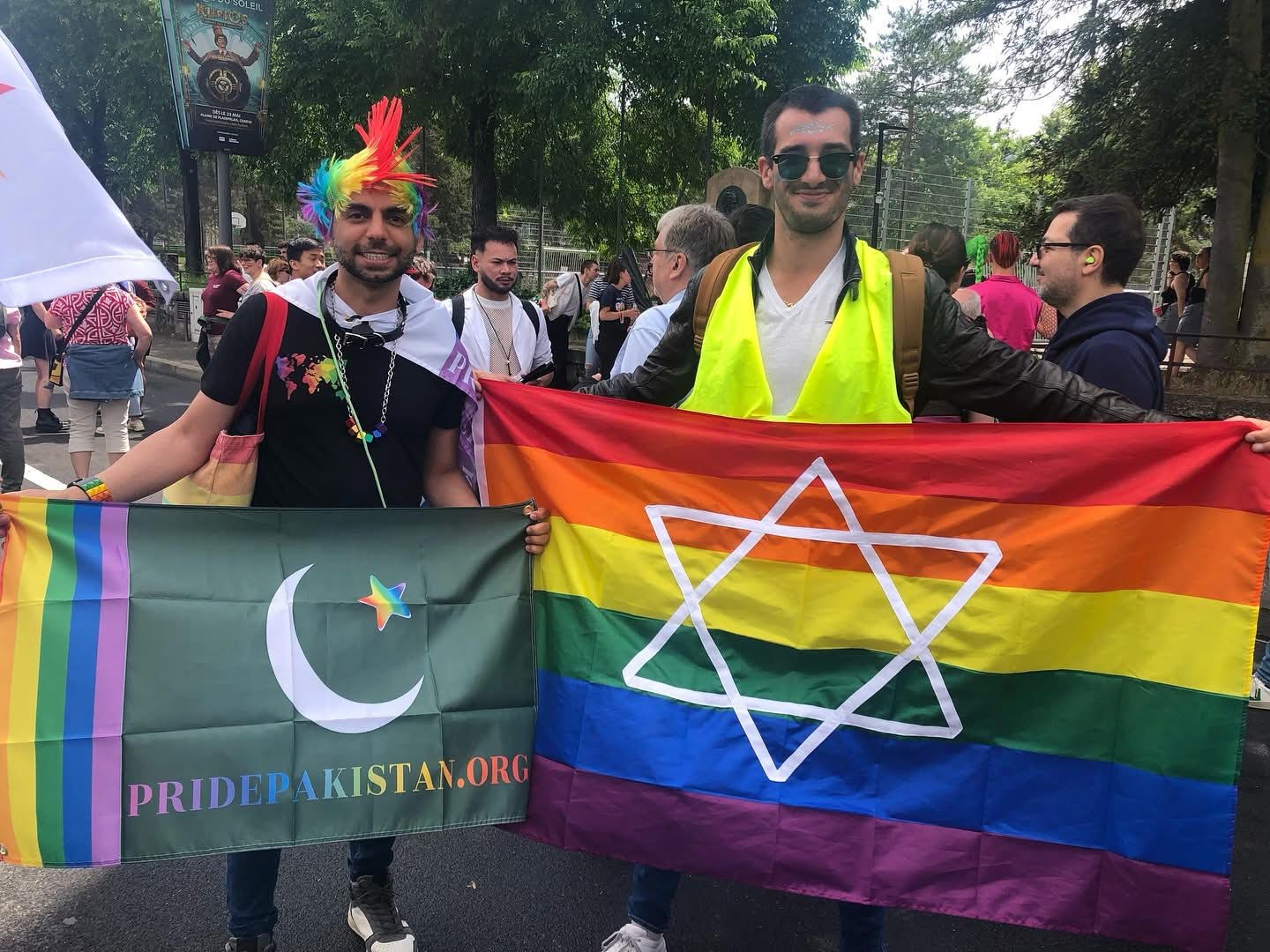
Building Bridges from the Ground Up: Joining the Global Muslim-Jewish Youth Unity Project
I am thrilled to announce my involvement as a team member in a truly groundbreaking initiative: the GLOBAL MUSLIM-JEWISH YOUTH UNITY PROJECT. This project, which officially launched on October 7, 2025, is not just another non-profit; it is a declaration of courage and a testament to the power of people over politics. The Impossible Has…
-
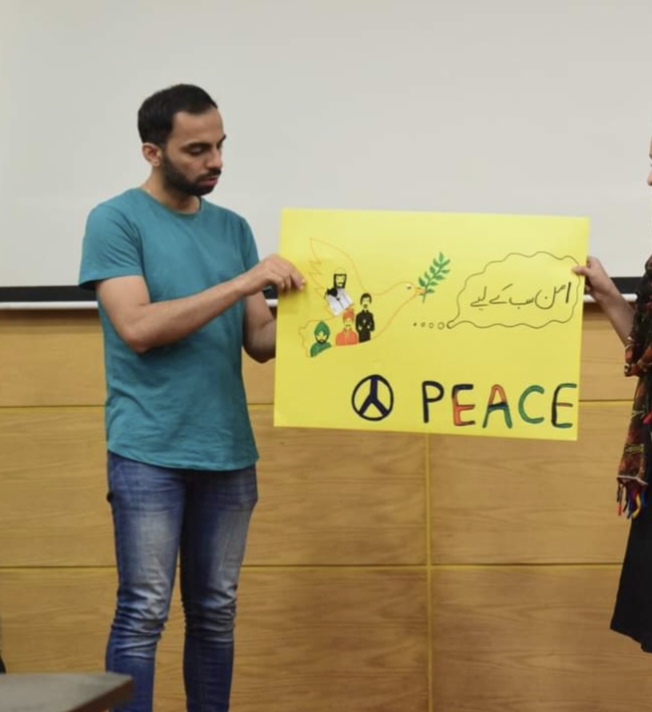
De la discrimination au dialogue : le parcours d’un bâtisseur de paix au Pakistan
Ali Raza Khan, bâtisseur de paix engagé originaire de Multan, au Pakistan, œuvre depuis 2015 pour lutter contre la violence sectaire et la discrimination qui touchent son pays depuis des décennies. Issu de la communauté musulmane chiite, Ali a transformé ses expériences personnelles en une force motrice pour le changement, formant des milliers de jeunes…
-

امتیاز سے مکالمے تک: پاکستان میں ایک امن ساز کا سفر
امتیاز سے مکالمے تک: پاکستان میں ایک امن ساز کا سفر علی رضا خان، جو کہ ملتان، پاکستان سے تعلق رکھنے والے ایک پرعزم امن ساز ہیں، ۲۰۱۵ سے فرقہ وارانہ تشدد اور امتیازی سلوک کے خلاف کام کر رہے ہیں، جو کئی دہائیوں سے ان کے ملک کو متاثر کر رہا ہے۔ شیعہ مسلم…
-
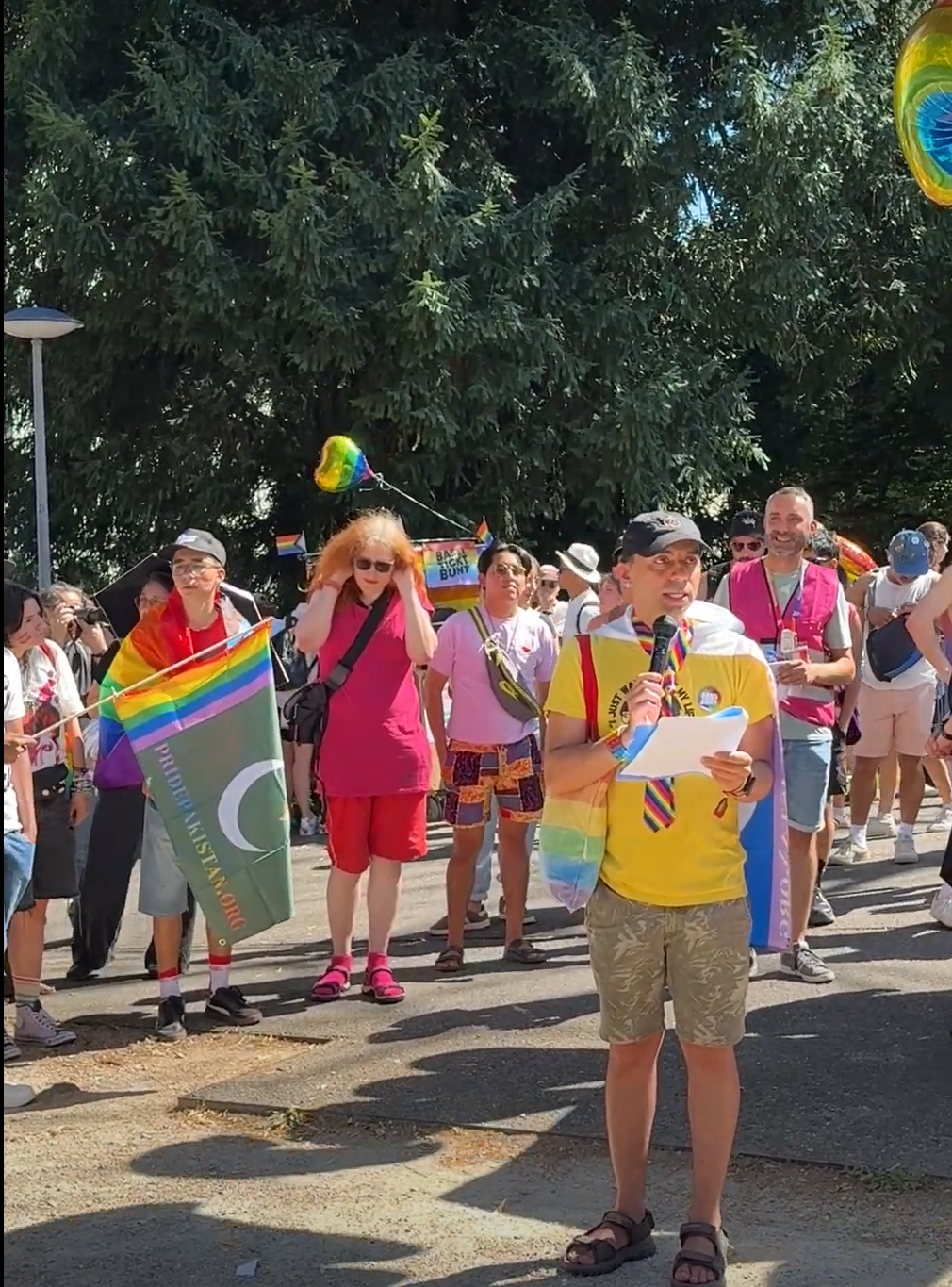
Debout et Fier à la Basel Pride 2025 : Mon Histoire, Notre Combat
Quel immense honneur ce fut de me tenir sur la scène de la Basel Pride 2025, le 28 juin, organisée par Baselticktbunt. Ce fut une journée remplie de célébration vibrante, mais aussi une plateforme cruciale pour des discussions profondes sur les droits humains et la lutte continue pour une véritable égalité. J’ai partagé la scène…
-
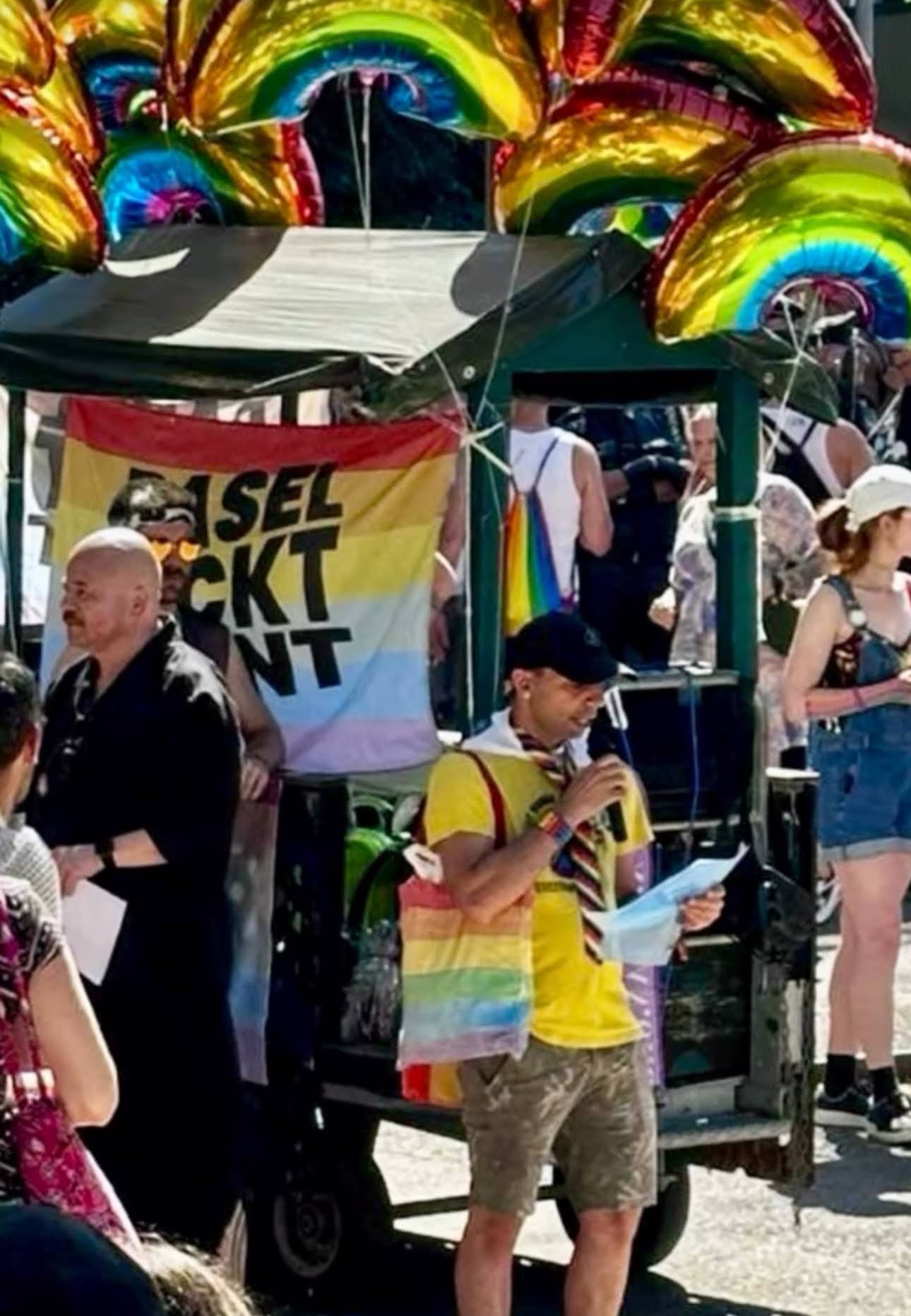
Standing Tall at Basel Pride 2025: My Story, Our Fight
What an incredible honor it was to stand on the stage at Basel Pride 2025 on June 28th, organized by Baselticktbunt. It was a day filled with vibrant celebration, but also a crucial platform for profound discussions on human rights and the ongoing fight for true equality. I shared the stage with remarkable individuals: Conradin…
-
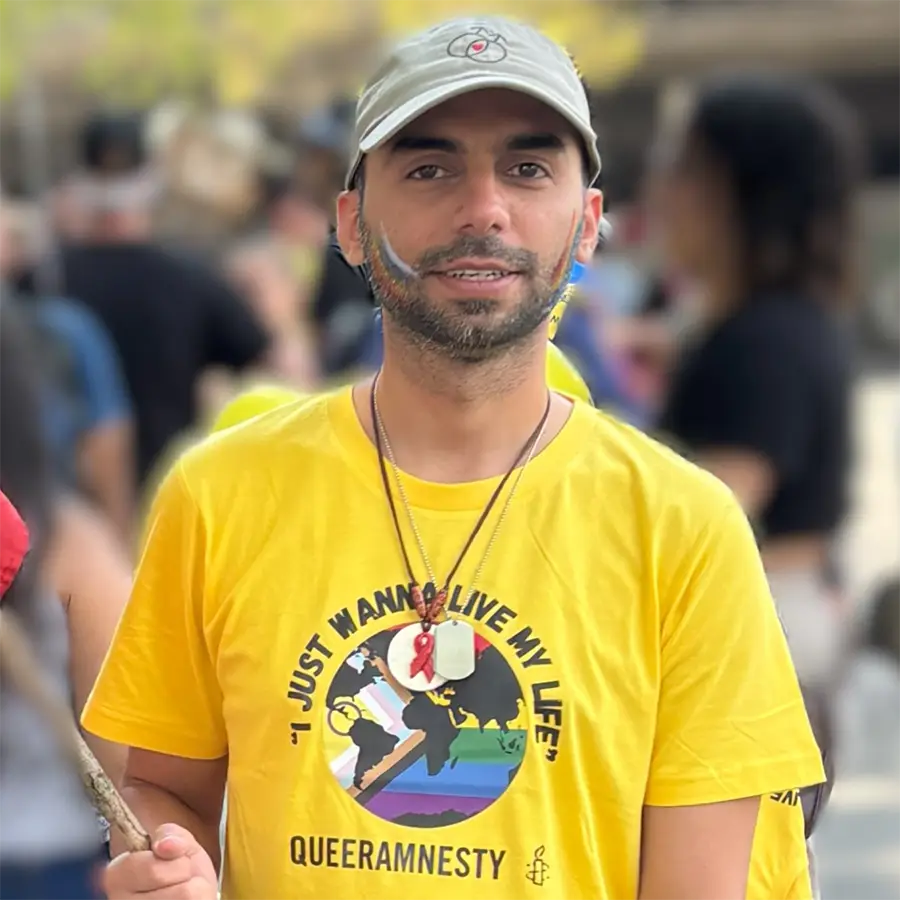
Honoré de prendre la parole à la Basel Pride 2025 : Les droits des personnes queer sont des droits humains !
Je suis incroyablement honoré et enthousiaste d’annoncer que je serai l’un des orateurs lors de la Pride Walk du festival Basel tickt bunt ! le samedi 28 juin 2025. La devise de cette année, « Queer Rights are Human Rights » (Les droits des personnes queer sont des droits humains), résonne profondément en moi et…
-

Ehre, bei der Basel Pride 2025 zu sprechen: Queer Rights Are Human Rights!
Es ist mir eine unglaubliche Ehre und Freude bekannt zu geben, dass ich am Samstag, den 28. Juni 2025, als Redner beim Pride Walk des Basel tickt bunt! Festivals dabei sein werde. Das diesjährige Motto, „Queer Rights are Human Rights“, deckt sich zutiefst mit meiner Arbeit und mir, und ich kann es kaum erwarten, gemeinsam…
-

Honored to Speak at Basel Pride 2025: Queer Rights Are Human Rights!
I am incredibly honored and excited to announce that I will be a speaker at the Basel tickt bunt! Festival’s Pride Walk on Saturday, June 28, 2025. This year’s motto, “Queer Rights are Human Rights,” resonates deeply with me and my work, and I can’t wait to stand with all of you in solidarity. The…
-
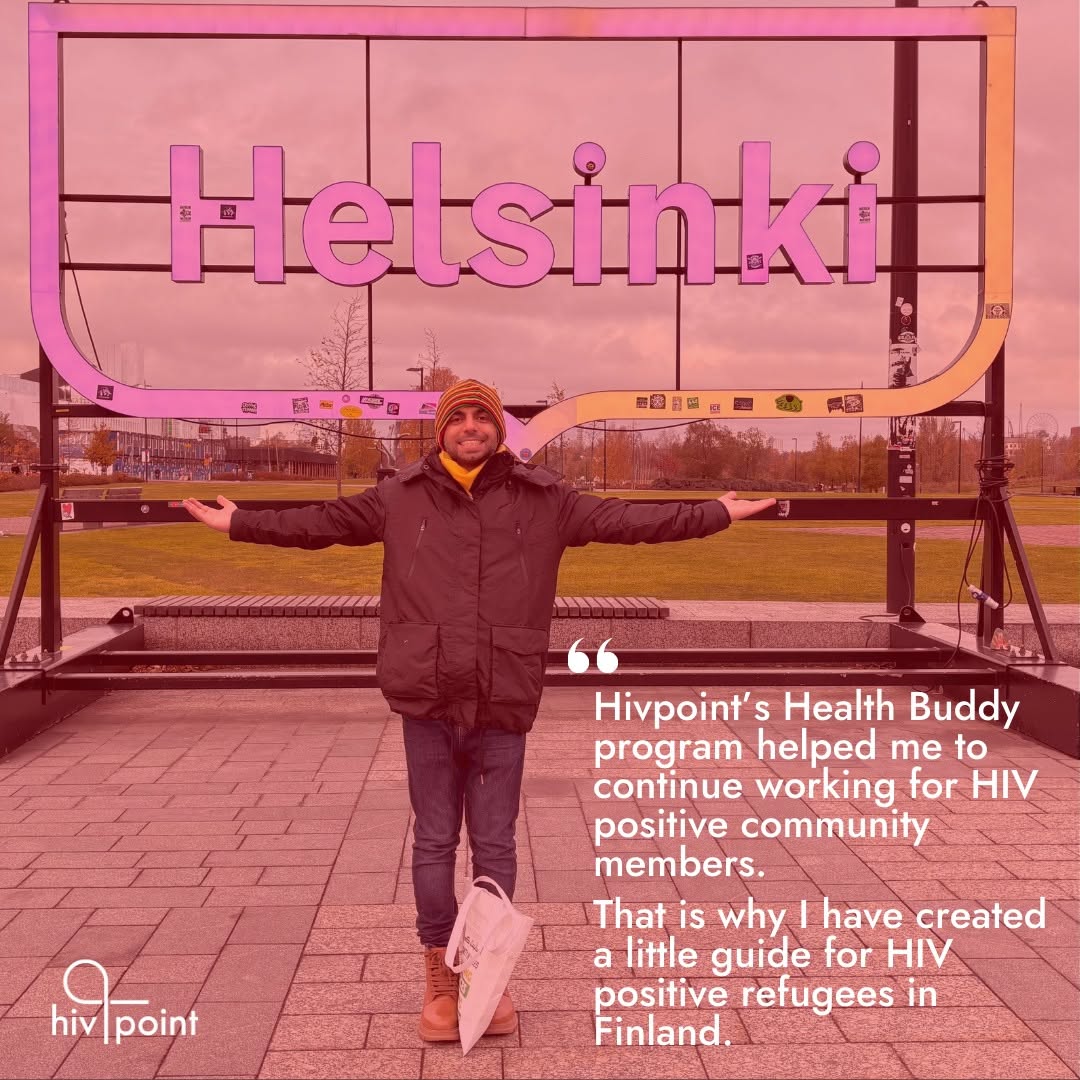
A Guide for HIV Positive Refugees in Finland
In this year’s blog series, we present the writings of Hivpoint’s Health Buddies 2024 in which they reflect on their own journey in promoting sexual health. Health Buddies spread knowledge about sexual rights and sexual health including HIV and other STIs in migrant and refugee communities. Let us present to you our wonderful Health Buddy Ali…
-
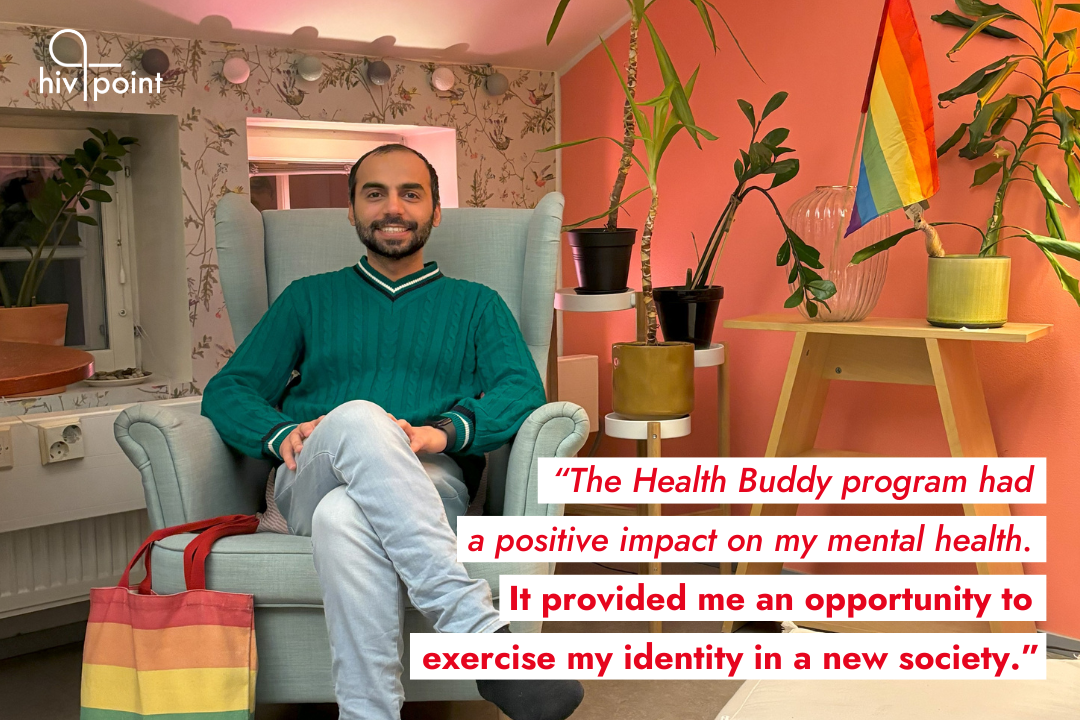
From Pakistan to Finland – My Journey as a Health Buddy and an HIV-positive Gay Activist
In this year’s blog series, we present the writings of Hivpoint’s Health Buddies 2024 in which they reflect on their own journey in promoting sexual health. Health Buddies spread knowledge about sexual rights and sexual health, including HIV and other STIs, in migrant and refugee communities. Let us present to you our wonderful Health Buddy Ali Raza…
-
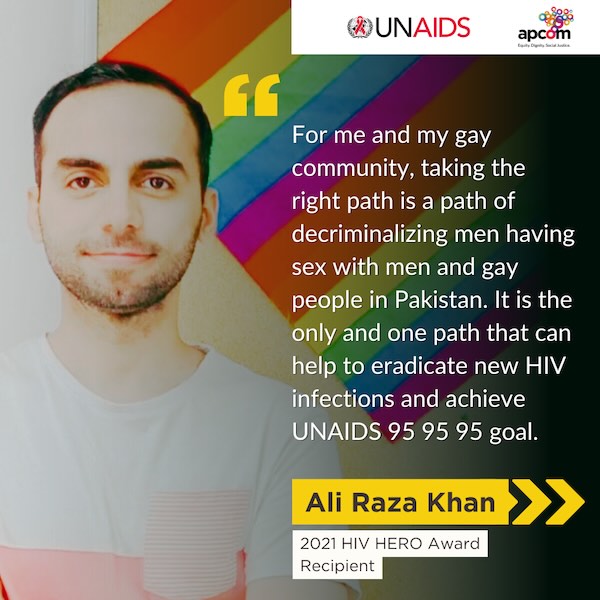
Ali Raza Khan World AIDS Day 2024 Discussion with APCOM
Recently Asia Pacific Coalition of Men Having Sex with Men or APCOM had asked me for small interview on World AIDS Day 2024. Below is my discussion with them. Brief bio of yourself Ali Raza Khan is a young HIV positive gay activist from Pakistan working for the community since 2015, focused on SRHR, HIV,…
-

World AIDS Day WAD 2024 Ali Raza Khan blog on Asia Pacific Coalition of MSM APCOM
Contributor:Ali Raza KhanHIV HERO Award recipient 2021 Ali Raza Khan is a young HIV positive gay activist from Pakistan working for the community since 2015, focused on SRHR, HIV, AIDS prevention and peace. He has worked with multiple local, national and international organizations for the rights of people living with HIV, men having sex with…
-
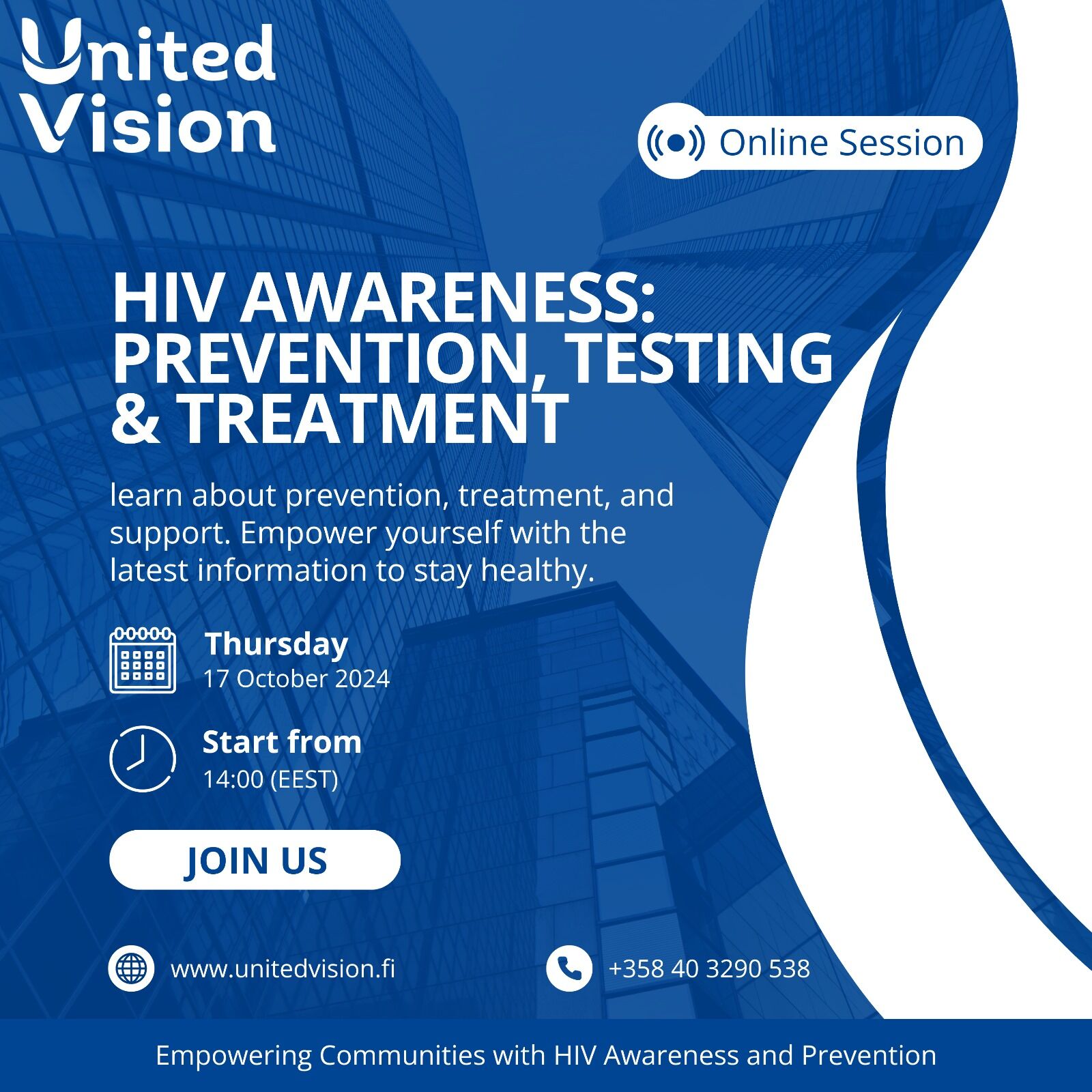
United Vision HIV Awareness Session with Ali Raza Khan
Ali Raza Khan, a renowned HIV positive gay activist, will be delivering an online awareness session as part of the HIVPoint.fi Health Buddy 2024 volunteer program. This crucial event is organized in collaboration with UnitedVision.fi and aims to educate and empower individuals about HIV. Join the session on October 17, 2024, at 14:00 (EEST) via…
-
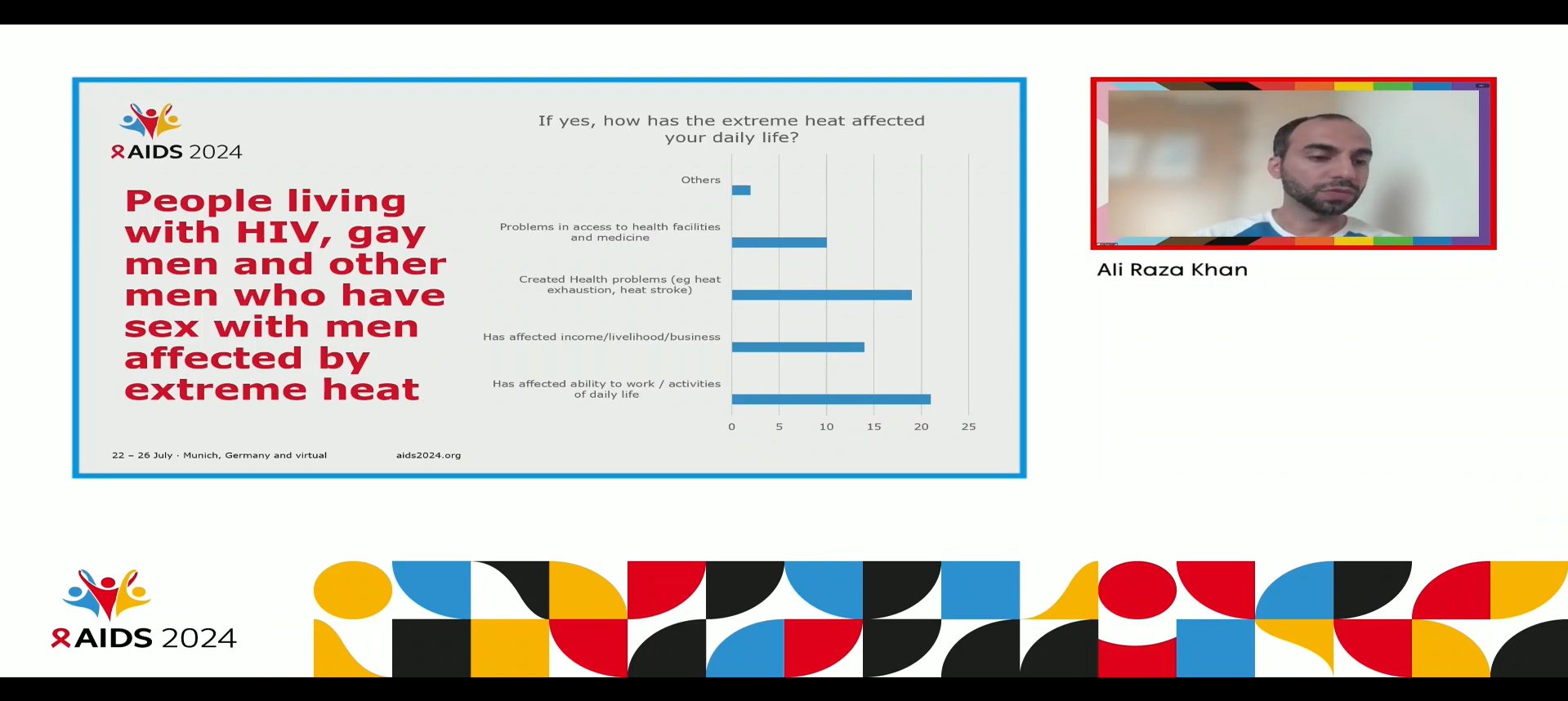
The Impact of Climate Change on People Living with HIV, Men Having Sex with Men and Gay Communities in Pakistan: Insights from the AIDS 2024 Conference
Munich, Germany – At the AIDS 2024 conference, Ali Raza Khan, founder of Pride Pakistan, delivered a compelling speech on the intersection of climate change and its effects on people living with HIV, gay men, and men who have sex with men (MSM). His presentation highlighted the severe impacts of climate change on these vulnerable…
-
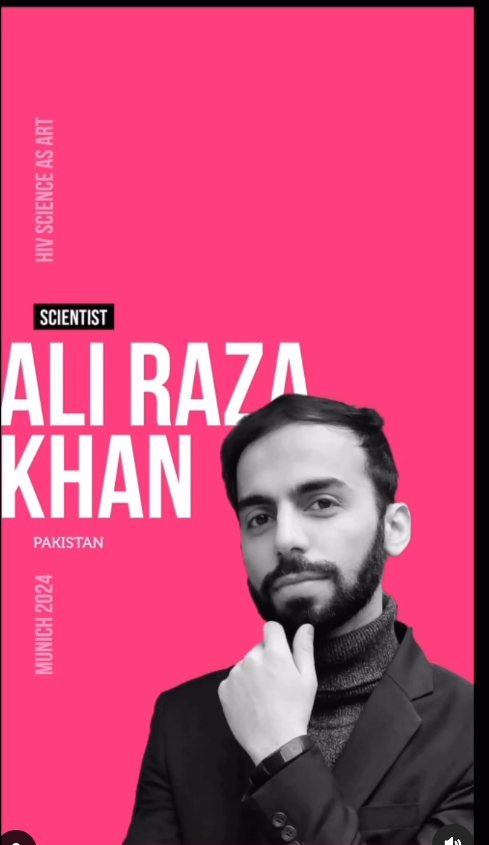
Artists, Scientists Collaborate In Art Exhibition Focused On HIV Including Ali Raza Khan
Artists and scientists have worked together to create pieces of art now on display in Munich, Germany in conjunction with the International AIDS Conference. The exhibition, titled HIV Science As Art, was conceived by co-curators Jessica Whitbread and Daniel Cordner. It follows in the footsteps of their 2023 show that was on display a year ago during the IAS…
